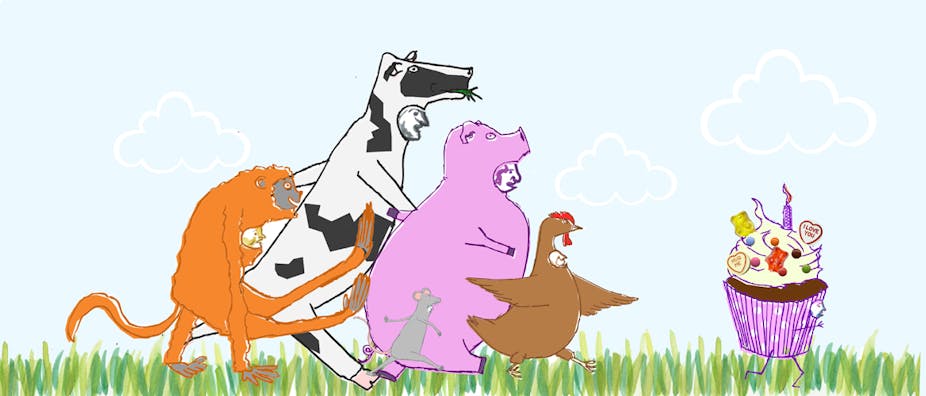The discount supermarket chain Aldi has come under fire in recent days for removing Roald Dahl’s Revolting Rhymes (1982) from its shelves following a complaint from a customer on its Facebook page. The complaint focused on Dahl’s use of the word “slut” in his parodic revision of the fairy tale Cinderella.
A predictable series of responses rapidly emerged on social media and the mainstream press, pitting would-be “wowsers” against those arguing that the dictionary definition of “slut” (traditionally, a woman with low standards of cleanliness) is not offensive. Dahl’s decades of popularity with young readers has probably added weight to the defence of Revolting Rhymes.
All of this commentary serves to highlight the importance of free access to books and ideas. But to suggest that this issue is limited to one supermarket chain removing one book is simply ludicrous.
Given Aldi in particular is known for its practice of quickly turned-over stock “intended to be on sale for one week in a bid to keep our range fresh and interesting”, it seems likely questions raised about access to children’s literature will be equally quickly forgotten in favour of next week’s special.
Some people may be taking comfort from the fact Aldi is far from the only, or even perhaps the most likely, source for a copy of Roald Dahl’s Revolting Rhymes or any other children’s book.
A quick trip to one’s local public or school library is likely to offer this and any number of engaging books for young people.
To be clear here: knee-jerk censorship of this kind is wrong.
In Australia, the peak professional body for librarians and information professionals is the Australian Library and Information Association (ALIA), which asserts as a core value the “free flow of information and ideas through open access to recorded knowledge, information, and creative works”.
ALIA is thus aligned with community expectations for libraries in democratic societies. Not least is that affirmed by the Department of Foreign Affairs and Trade, which reassures us that:
Within the framework of Australia’s laws, all Australians have the right to express their culture and beliefs and to participate freely in Australia’s national life.
It must be noted that both ALIA and DFAT are trading in ideals rather than legally-guaranteed rights here.
But Australians have no legally-enshrined rights to freedom of ideas or of speech equivalent to those of, for example, citizens of the United States. And in turn, there is no Australian equivalent of the American Library Association’s “Office for Intellectual Freedom” (OIF).
The OIF’s central purpose is:
to educate librarians and the general public about the nature and importance of intellectual freedom in libraries.
The OIF is also a clearing-house for librarians to report book challenges or book bannings, and to get advocacy support. It is thanks to the OIF and those who support it that we know Dav Pilkey’s Captain Underpants was the most frequently challenged book of 2013 in the US.

In Australia the challenging or banning of books for young people is made visible mainly through popular media, word-of-mouth or via individual experience. Just as the defence of any given book in any given library is subject to the whims of a particular library or institution rather than being guaranteed by law, the public visibility of challenges or defences is subjective rather than guaranteed.
For anyone truly committed to the values of freedom of information, of ideas, and of books as essential vessels for information and ideas, it is heartbreaking that Australia has no equivalent to the OIF, and that Australian librarians may be (or feel) isolated when facing a book challenge or a banning.
If you found the news of Aldi’s removal of Revolting Rhymes from its shelves in any way disturbing, by all means vote with your dollar and shop elsewhere; post a complaint on Aldi’s Facebook page; or, write a letter to Aldi’s management.
But if you are going to do that, may I humbly suggest you also – or instead – write a letter or post a social-media message to your local library, or school, or bookseller.
Don’t wait for a local challenge to freedom of ideas or of books: let your local book folks know you have their back, that you support them in their efforts to make ALIA’s core value of “free flow of information and ideas through open access to recorded knowledge, information, and creative works” a reality in our libraries and our communities.

